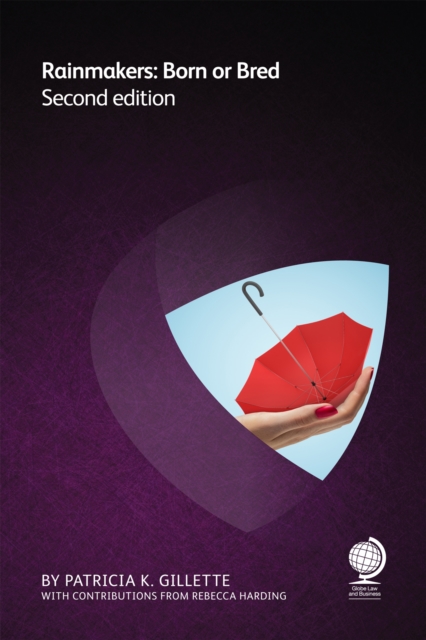“The thing women have yet to learn is nobody gives you power. You just take it.” I have to confess that never in a million years did I think I would be quoting Roseanne Barr for anything. But, it has become clear to me that this statement should be the mantra for every Women’s Initiative in every law firm.
Women’s Initiatives are standard at most firms, which is certainly progress from even 10 years ago. Women now have the means to collectively address issues that relate to their success in law firms. But despite the proliferation of Women’s Initiatives, there has been little change in the number of women in leadership roles in large law firms — women comprise less than 2 percent of the managing partner ranks and less than 16 percent of the leadership positions. Even more shocking is the fact that the number of women rainmakers, at least rainmakers who are rewarded at the top compensation levels of their firms, continues to hover around 2 percent. If women want to try to impact these parts of their firm’s power structure, they must change the focus of their initiatives.
That begins by rejecting the premise that the reasons for the under representation of women in leadership and rainmaker ranks of law firms lies solely with women and our skill sets. Training in client development, encouraging mentoring, ensuring that firms have reduced hours policies, and sponsoring social events with clients are important and have benefited many women in our profession; but they focus on the women— not on the firm structures in which those women are practicing law. Therein lies the elephant in the room. For many law firms, the under representation of women in power positions cannot be solved without examining the institutionalized practices that keep women from getting opportunities for leadership positions and client development opportunities. Can a Women’s Initiative get their firms to address these issues? Maybe.
The answer is maybe because, in truth, Women’s Initiatives in many firms are not part of the power structure. Too often, they are the window dressing that puts a firm on one of the coveted lists or gets a box checked on a client RFP. Luckily, that is not the case in my firm and I am sure there are other exceptions.
But in those firms where Women’s Initiatives have not begun to address how power is wielded and transferred in their firms, here are some tips for how to approach those issues: Increase leadership opportunities. For too long leadership opportunities in many firms have been passed on through a mysterious process that few in the firm can actually describe. This can result in limiting opportunities for women and minorities. Women’s Initiatives can begin to unpeel this onion, by insisting that firms reveal how people are selected for meaningful leadership positions (like Executive Committees, Compensation Committees, Partnership Promotion Committees, etc.); solicit input from a wider range of partners to ensure consideration of diverse candidates who may not have the same visibility as other partners; monitor the outcome of these processes to determine if women and diverse candidates are being identified and moved into leadership positions and the pace at which that is occurring; and reward partners who mentor and promote women into leadership positions.
Increase the number of women rainmakers. While it may be true that rainmakers are born not made, it is not true that they have to be born male. But, in some firms, women are still held back by the unwritten rules of how clients’ relationships are passed on, intentional or unconscious bias, and/or processes that discourage sharing of opportunities. Furthermore, the ways in which client relationships are developed and credited varies greatly from firm to firm. Thus, there is no “one size fits all” solution to addressing these potential barriers to women breaking into the rainmaker ranks. But this is a place where Women’s Initiatives can request and/or provide meaningful data and information so that firms can evaluate whether their practices need to be changed to ensure that women are getting the same opportunities as men.
Women’s Initiatives can be the impetus for bringing transparency to the issues that impact rainmaking opportunities by insisting that firms disclose: how relationships are passed on from senior partners to more junior partners; how pitch opportunities are assigned; who actually does the work if it comes in; and how credit for clients is determined and distributed.
Monitoring these types of activities and formalizing processes to ensure that women are given the same business development opportunities and credit for developing clients as men is critical to increasing the number of women rainmakers in a firm.
The time has come for Women’s Initiatives to take off the gloves and start wielding the untapped power that resides within their group. Think of it. If senior women and junior women joined together and used their collective power, they would be a force to be reckoned with. Teas with clients, spa outings, skills building, and community service events are critical components of a firm’s Women’s Initiative; but unless these initiatives also start insisting that the lack of leadership and rainmaking opportunities be addressed by their firms, we will continue to live in a world where women are underrepresented and underpaid. Nobody is going to give us this power. We just have to take it.
By Patricia K. Gillette, Founder Opt-In Project and Partner
First published Daily Journal
July 2010

